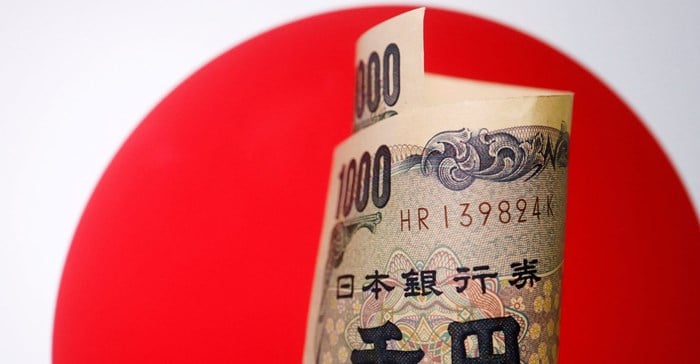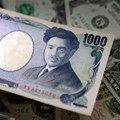Yen nervy as markets on intervention alert; Aussie slips after RBA

The Reserve Bank of Australia (RBA) held interest rates steady at 4.10%, saying it wanted more time to assess the impact of past hikes, but warned further tightening might be needed to bring inflation to heel.
Across the currency markets, investors remained on watch for possible intervention by Japanese authorities to stem yen losses.
The yen last fetched 144.64 per dollar in Asian hours, but remained close to last week's eight month low of 145.07 per dollar that prompted finance minister Shunichi Suzuki to warn against excessive yen selling.
Earlier on Tuesday, Japan's top financial diplomat Masato Kanda said that officials were in close contact with US Treasury Secretary Janet Yellen and other overseas authorities almost everyday on currencies and broader financial markets.
"This is sending signals that a co-ordinated intervention may be coming as yen continues to hover above 144 per dollar," said Charu Chanana, market strategist at Saxo Markets.
"A co-ordinated intervention usually has a longer lasting impact on the yen than a unilateral intervention would have."
Japan bought yen in September, its first foray in the market to boost its currency since 1998, as the Bank of Japan's pledge to retain ultra-loose policy as long as required drove the yen as low as 145 per dollar. It intervened again in October after the yen plunged to a 32-year low of 151.94.
The Australian dollar slid 0.3% to $0.6654 after the RBA's decision, reversing its early morning gains.
RBA's impact on Aussie: analysis
"The RBA’s steady hand is probably only a flesh wound for the Aussie, having been about 60% priced in and with no great rhetorical shifts in the statement," said Sean Callow, a senior currency strategist at Westpac.
Markets had leant toward a steady outcome given inflation had eased a little more than expected in May, while economists were split on the outcome, with 16 out of 31 polled expecting a hike and the rest forecasting the bank to stand pat.
Since a surprise pause in April and subsequent hikes in May and June, economists have been mostly divided in recent months over the RBA's next move.
Against a basket of currencies, the dollar rose 0.097% at 103.05 after data overnight showed US manufacturing slumped further in June, reaching levels last seen when the nation was reeling from the initial wave of the Covid-19 pandemic.
Q3 2023 recession for US economy predicted
"We expect the US economy to face a recession starting in Q3 23," Kristina Clifton, senior currency strategist at Commonwealth Bank of Australia, adding that it was likely to be a quiet day for the currency market with no major data releases or central bank speech scheduled. US markets are closed for the 4 July Independence Day holiday.
Investor focus this week will be on nonfarm payrolls data along with jobs report for more clues about the broader labour market in the United States. Minutes of the US Federal Reserve's June meeting are also due to be released on Wednesday.
Markets are pricing in a near 87% chance of a 25 basis point hike in the next Federal Reserve meeting at the end of the month, the CME FedWatch tool showed.
The euro was down 0.13% to $1.0897, while sterling was last at $1.2685, down 0.05% on the day.
The New Zealand dollar eased 0.15% to $0.614.







